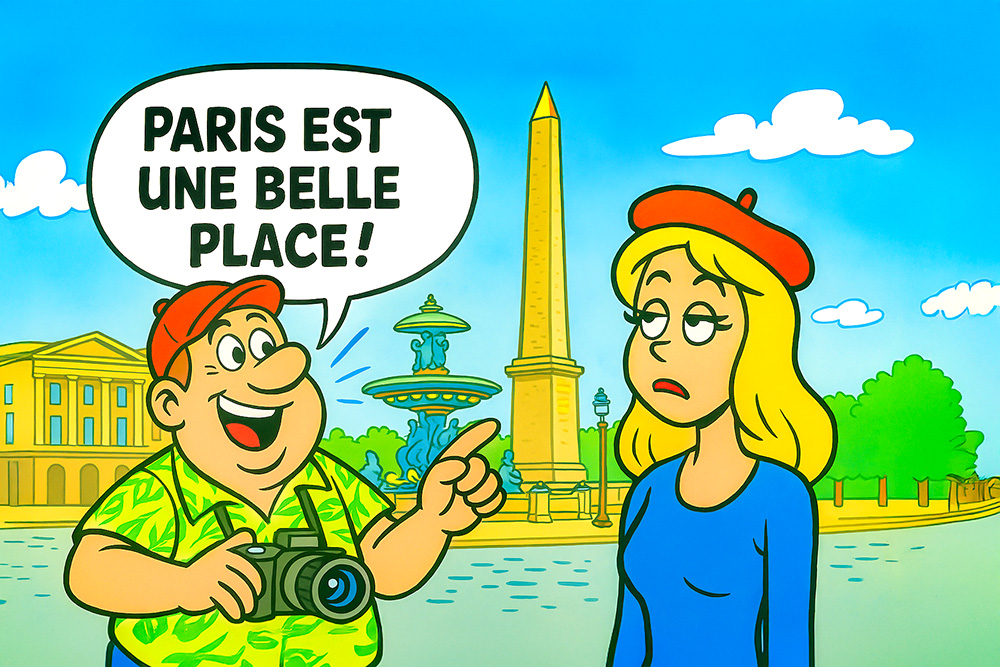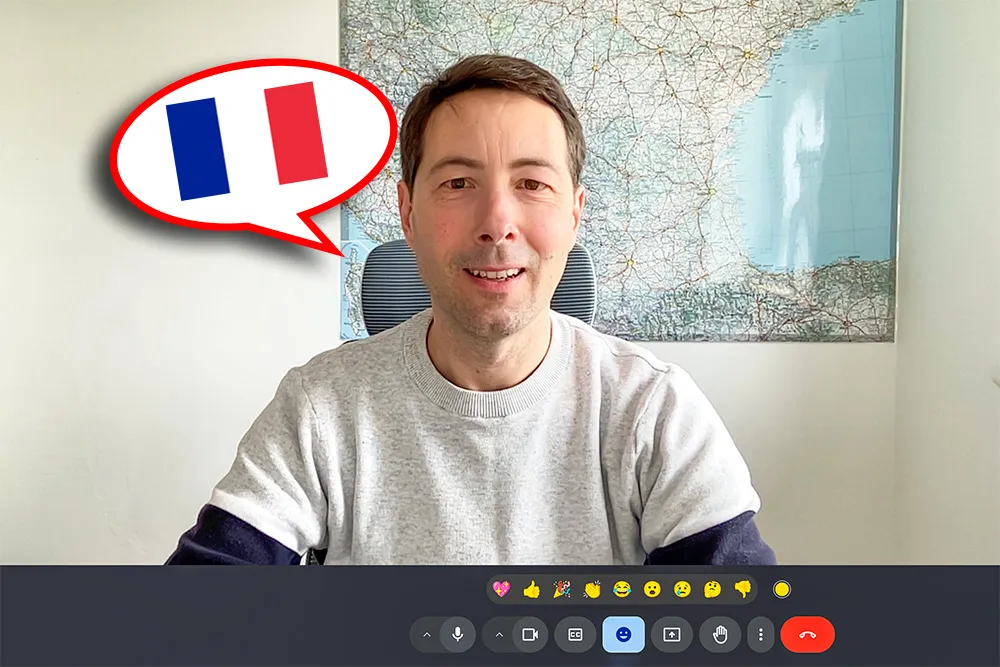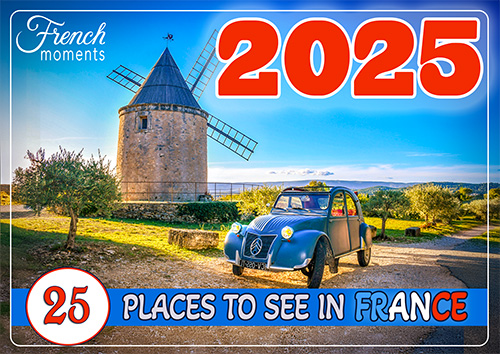Here's a short French lesson about the Location vs La location (and the tricky case of la place)...
During one of my recent online lessons, I noticed something: my students — bright, motivated, wonderful people — almost always stumble over the same trap.
They say location in French when they mean place.
And they say place in French when they mean place.
Confused already? Don’t worry, let’s unpack this little bundle of false friends.
The truth about the location vs la location
- In English, location means where something is situated.
→ The location of the hotel is perfect.
→ The film was shot on location in Provence. - In French, la location means the rental.
→ La location d’un appartement à Paris. = The rental of a flat in Paris.
→ La location de voitures à Nice. = Car hire in Nice.
So if you tell a French person:
- ❌ Je cherche une location à Paris.
→ They’ll assume you’re looking for a rental property. - ✅ What you meant was: Je cherche un endroit à Paris. = I’m looking for a location (a place) in Paris.
And then there’s the place vs la place
In English, place means an area, a spot, somewhere to be.
→ Paris is a beautiful place to visit.
→ This is the perfect place for a picnic.In French, la place means:
A square: la place Stanislas à Nancy, la place de la Concorde à Paris.
A seat: une place de cinéma = a cinema seat.
A spot/room: Il n’y a plus de place dans la voiture = There’s no more room in the car.
So when anglophones say:
❌ Paris est une place merveilleuse.
→ It sounds like Paris is a single square (probably with fountains and pigeons).✅ Paris est un endroit merveilleux.
→ Correct: Paris is a wonderful place.
Quick cheat sheet

Funny examples for travellers
1. The location trap
❌ Je cherche une location à Paris.
→ Sounds like: “I’m looking for a rental flat in Paris.” (You sound like you’re moving house, not on holiday.)✅ Je cherche un endroit sympa à Paris.
→ Correct: “I’m looking for a nice place in Paris.” (Now it’s clear you mean a spot to visit, not a lease agreement!)
2. The place trap
❌ Paris est une belle place.
→ This literally means: “Paris is a beautiful square.” (As if Paris were just one piazza full of pigeons.)✅ Paris est un bel endroit / une belle ville.
→ Correct: “Paris is a beautiful place / city.” (Much closer to what you wanted to say.)
3. The restaurant mistake
❌ La location du restaurant est superbe.
→ This means: “The restaurant’s rental contract is superb.” (Only your lawyer would be impressed.)✅ L’emplacement du restaurant est superbe.
→ Correct: “The location of the restaurant is superb.” (Exactly what you mean when praising a terrace with a view of the Côte d’Azur.)
The moral of the story
If you’re talking about where something is, think endroit, lieu, or emplacement.
If you’re talking about rentals, then yes — la location is perfect.
And if you’re talking about places, don’t shrink Paris down to a single square — save la place for Stanislas, Concorde, and your cinema seat.
Because in France, you can definitely find a location in a place, but what you’ll actually get is… a rental flat on a square. Voilà. 😉



